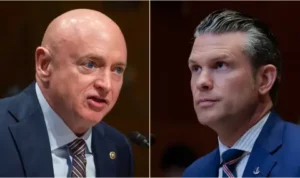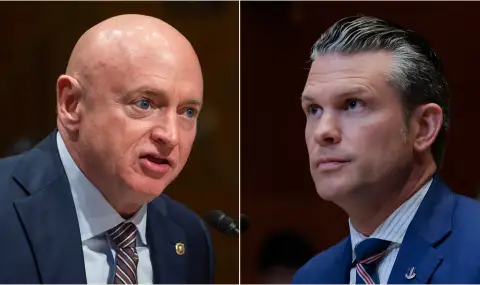Inside the Epstein Files Who Holds the Key To America’s Most Watched Secrets
You know, I’ve watched this story for years. Not because I’m obsessed with celebrities or scandals, but because I’ve seen how power works when no one is watching. And what’s happening right now with the Epstein files isn’t just about a dead man. It’s about who still holds the keys — and why they won’t let them go.
Jeffrey Epstein died in August 2019. He was waiting for trial. He had pleaded not guilty to charges of trafficking underage girls — some as young as 14. But before he died, he told a prison psychologist, “I have no interest in killing myself. I’m a coward anyway.” That wasn’t a cry for help. That was a warning. He knew too much. And he wasn’t going to fold. Still they called it a suicide, and eventually killed the investigation.
A lot of what’s happening behind the scenes around Jeffrey Epstein’s case feels like a tense game played by powerful players and the people who guard the files. You may not like what’s about to be shared, but that doesn’t mean unfollowing is the right move. Different viewpoints exist, and your thoughts in the comments would be valued.
Darren Indyke and Richard Kahn are Epstein closest associate, Indyke was Epstein’s lawyer for 25 years. Kahn was his accountant for over 20. They handled his money, his properties, his legal defenses, his private jets, his contacts. And when Epstein died, they got everything — every email, every ledger, every photo, every name written in a notebook, every safe, every server.
That’s right. For six years, these two men — now accused by the U.S. Virgin Islands Attorney General of being “indispensable captains” in Epstein’s trafficking operation — have been the only ones with full, unchallenged control over the entire archive.
A quick look back at the case helps explain the current tension. Epstein’s estate named co-executors Darren Indyke and Richard Kahn as defendants, saying they helped run the trafficking operation for years. The two men strongly deny these accusations, with their lawyer saying there was no misconduct by Epstein and that the claims are baseless. Epstein had pleaded not guilty to federal charges accusing him of running a sex trafficking ring involving underage girls, some as young as fourteen.
Turning to recent revelations, notes from Epstein suggest a person who wanted to stay in control even as his power waned. He spoke about his fearlessness in the face of danger, and he boasted about having influence over high level figures while keeping dirt on global elites. Some view this as evidence that the files are not just about Epstein, but about who controls what the public can see now.
The key point, many readers may sense, is about custody and access. Since Epstein died in 2019, his digital and paper archives were placed in the hands of his estate, led by Indyke and Kahn. Victims have sued both men for allegedly building the money system that supported the trafficking network, and both appear in Epstein’s emails as trusted operators. They still control the narrative. No independent tech team ever copied the hard drives. No neutral third party ever verified what was there. No judge ever forced them to open everything.
Instead, they’ve been playing a game. A slow, careful game called “rolling production.” That means they decide what documents get released, when, and in what order. They drip-feed the public. One email here. A redacted page there. Always on their schedule. Always on their terms.
August 2025: House Oversight subpoenas the estate, congressional investigators pressed the estate for documents, but Indyke and Kahn decide what gets released and when. The releases have been slow and selective, described as rolling production, with no third party verifying the material. Critics argue this is a single gatekeeping process that leaves the public with a filtered view.
On November 12, 2025, Democrats released three emails that shocked the country. One said Epstein bragged that Donald Trump “knew about the girls.” Another described hours spent with a minor. The victim’s name was redacted — protected, as it should be. The new disclosures included emails suggesting private conversations between Trump and a trafficking survivor, with the survivor’s name redacted. Then hours later White House spokesperson Karoline Claire Leavitt named the survivor in a TV appearance, named that victim: Virginia Giuffre. Virginia had died by suicide in April 2025. She was a survivor. A voice. A person. And now, her name was used like a weapon — not to honor her, but to shut down the conversation, which intensified the debate over transparency.
Four months ago, Bondi’s DOJ declared that Epstein files warranted no further investigation. But it took Bondi four hours to open an investigation anyway once Trump demanded–and only into Democrats. The message was clear: If you try to expose the truth, we will use your pain to defend the powerful.
Shortly after on the same day, Republicans dropped the entire 23,000-page collection — all at once. But they rushed it. They didn’t check. They didn’t care, the large batch of around 23,000 pages was released, but some redactions were inconsistent and some contact details remained visible. The process was criticized as rushed, prioritizing politics over complete, careful disclosure. They admitted it. They said they did it fast to “counter the Democrat cherry-pick.” Speed over safety. Politics over protection. Revenge over truth. This isn’t transparency. This is performance.
The broader concern remains even after these releases: only two entities have ever had full, unredacted access to Epstein’s archive for years. Those are Epstein’s estate and the Department of Justice, under different administrations — under Obama, under Trump, under Biden, and now again under Trump. Every document you’ve ever seen — every leak, every headline, every “full release” — passed through one of these two hands. Every other release has come through one or both of those channels. When officials at the White House or Congress discuss what was redacted or released, observers see the same gatekeeping at work. That’s not coincidence, that’s dual game control – “If you implicate me and show my name, I will also do the same.” Two coach and team mates using the same playbook from one evidence source to fight each other. This kind of games happens when all parties are guilty.
This isn’t about a single news cycle. It’s about a system that appears to protect a powerful network by controlling what information lands in public view. Survivors and supporters are calling for complete, unredacted, forensically verified archives with an unbroken chain of custody to ensure accountability.
Why is it difficult? All parties have something significant to lose. If you’re in power, why can’t you just release everything? There are only two possible reasons: either the person in power is also guilty, or many of his associates are.
And when the other party was in power, why didn’t they release it all? Again, there are only two reasons: they were guilty too, and they chose to release only a few details—hoping it would help their re-election. Just think about it.
By the way, have anyone wondered why Prince Andrew was effectively removed from public life in steps that began in 2019 and were finalized in October 2025, after which he stopped using his titles and was evicted from his residence. Key moments include stepping back from public duties in 2019, being stripped of his military titles and the “His Royal Highness” style in 2022, and then in 2025, giving up his title of Duke of York and being forced to leave his home. This dynamic helps explain it, though never criminally convicted, his well-documented ties to Jeffrey Epstein—and his refusal to cooperate fully with U.S. investigators—made him a liability the monarchy could no longer afford. With the Epstein files still tightly controlled by gatekeepers on both sides of the Atlantic, the British establishment likely acted not out of moral clarity, but having a privileged access to the files, and then did a damage control: removing Andrew wasn’t about justice, but about shielding the institution itself from the fallout of truths still locked away. Just think about it—when even a prince must fall to protect the silence, you know the secrets run deep.
And now, next week, Congress will vote on something called the Massie-Khanna discharge petition. It’s a rare, powerful move to force the Justice Department to release every single file — without filters, without delay, with full forensic verification.
It’s the first real chance survivors have had in six years. And guess who’s fighting it? Donald Trump. Does he have a good reason to? Please let me know in the comment section. This circled back to what Elon Muck said, the statement that caused the fallout. Elon implicated Trump.
Trump personally pressured Republican leaders to kill it. This has also caused a split within the GOP. He’s attacked lawmakers like Thomas Massie and Marjorie Taylor Greene — who actually support transparency — for daring to ask for the truth. He promised to “drain the swamp.” Is he now guarding it. Why?
It obvious, the files aren’t just about Epstein. They’re about who else was there. Who else flew on the plane. Who else paid the money. Who else looked away. Who else covered it up.
And now — decades later — survivors like Annie Farmer are still standing in front of Congress, still begging for justice. Still waiting for their names to be heard, not erased.
And here’s the survival rule you must never forget: When both political parties scream at each other over leaked emails — but neither one will let go of the full, unredacted, verified archive — then you know the truth.
They’re not fighting each other. They’re protecting the same thing. This network didn’t die with Epstein. It moved. It went from a private island to the halls of Congress. From a lawyer’s office to the Department of Justice. And now, the most powerful office in the world is doing everything it can to keep it buried. You think this is about politics? No. This is about power. And power doesn’t care if you’re liberal or conservative. Power only cares if you’re quiet.
A recurring takeaway is clear: if both sides in the political debate accuse each other of leaking selectively while both oppose full disclosure, the implication is that a resistant network remains protected. The episode isn’t over, and the people who lived through this crime deserve transparency and accountability.
Final note: when the people who were part of the Epstein operation, the companies that settled lawsuits, the estate’s managers, and the highest offices in power all agree to keep the full files sealed, it signals that something big is being hidden. The question for readers is whether true openness will ever arrive, or if the story will keep moving behind closed doors. It doesn’t matter which part of the political shelf you belong, truth is constant, let’s all put our differences and preferences aside, and seek the truth on this matter.











